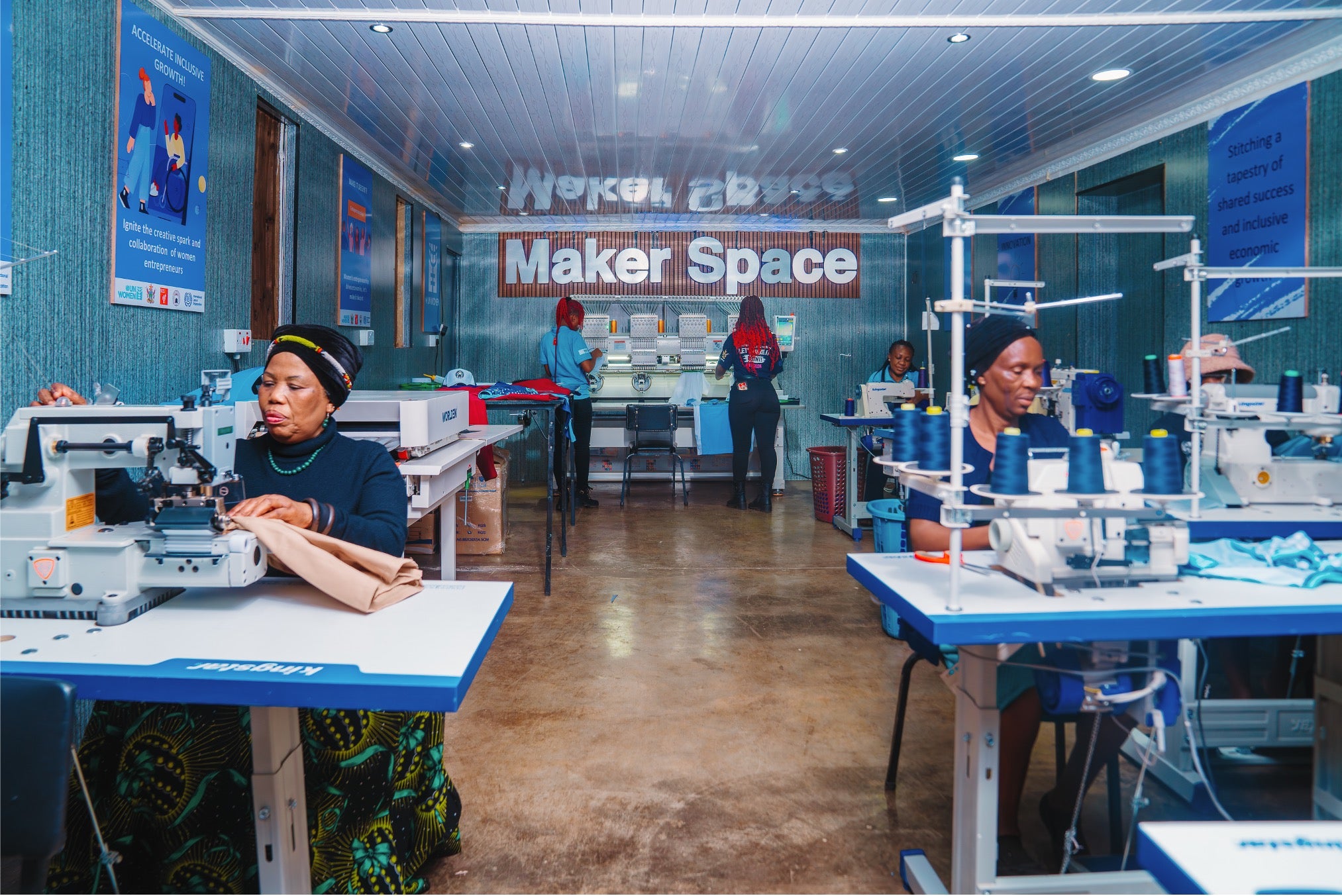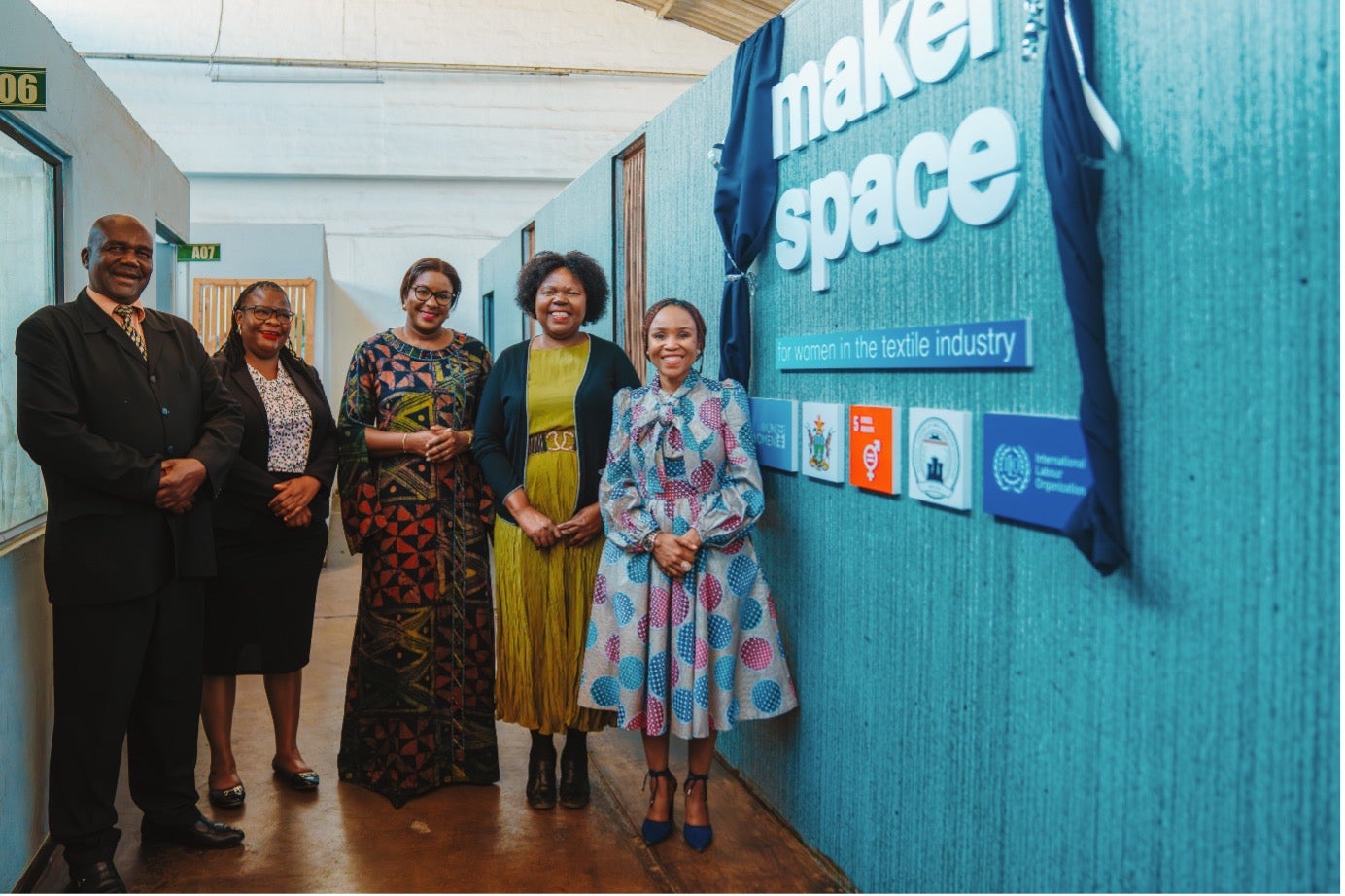Empowering women in textile: The launch of Bulawayo's Maker Space Innovation Hub
Date:

In the heart of Bulawayo, a new dawn is breaking for women entrepreneurs in the textile industry.
The Maker Space Innovation piloted by UN Women Zimbabwe and the Ministry of Women Affairs Community, Small and Medium Enterprises Development. is special services facility was created to catalyse the development and efficiency of women-owned enterprises within the textile industry. A groundbreaking initiative designed to empower and transform their business, the space gives women entrepreneurs access to specialized equipment, renewable energy, and relevant skills in a convenient and affordable manner.
In a launch event attended by representatives from UN Women, the Ministry of Women Affairs, the International Labour Organisation, and the Bulawayo Chamber of SMEs stakeholders spoke passionately about the importance of this initiative in promoting the competitiveness and meaningful participation of women-owned enterprises. The Maker Space is not just a facility; it is a beacon of hope and a testament to the power of collaboration.

In Launching the Maker Space Innovation Hub on Behalf of Minister of Women Affairs, Permanent Secretary in the Ministry, Dr Mavis Sibanda said “This initiative underscores our commitment to gender equality and the development of micro, small, and medium enterprises, driving Zimbabwe towards a prosperous and inclusive future.”
UN Women Country Representative, Ms Fatou Lo challenged stakeholders to imagine a Zimbabwe where every woman’s potential is realized, and where economic prosperity across all sectors knows no gender boundaries.
ILO Director for Zimbabwe and Namibia, Ms. Philile Masuku said “This initiative exemplifies an effective Public-Private Partnership (PPP) facilitated by UN technical and financial support. The introduction of cutting-edge equipment is expected to drive productivity, foster innovation, and add value to the efforts of micro, small, and medium enterprises, ultimately aiding their rapid growth and formalization.”
One of the key features of the Maker Space is its focus on timely output production that meet the highest standards of quantity, quality, and cost. This is crucial for the competitiveness of women-owned enterprises, enabling them to thrive in a challenging market. The facility is expected to benefit approximately 500 women in the textile industry every year, providing them with training and access to specialized equipment.
“As I stepped into the Maker Space, for the first time I was filled with excitement. I knew this was a game-changer for my enterprise. With the support of this Maker Space, I can now produce high-quality products more efficiently and cost-effectively. This facility will afford me a platform for sharing ideas, collaborate on projects, and learn from others.” Said Nomalanga Ncube one of the female beneficiaries from the Bulawayo SME Centre.
The launch of the Maker Space Innovation marks a significant milestone in the journey towards gender equality and economic empowerment in Zimbabwe. It is a celebration of the resilience and creativity of women entrepreneurs and a commitment to supporting their growth and success.
To ensure the sustainability of the Maker Space Innovation, government committed to implementing strategies and policies that may include tax incentives, subsidies, and simplified regulatory processes that support small and medium enterprises, particularly those owned by women. Facilitating access to local and international markets for products created in the maker space.